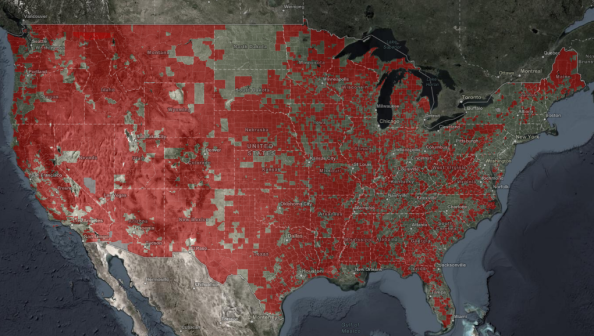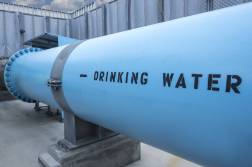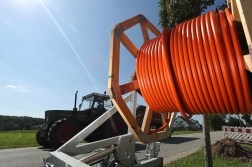Report: It’s time for San Francisco to build public broadband

San Francisco is taking action to close its digital divide. A report published Monday by a panel of city officials and industry experts advocates for greater city involvement in providing internet access, concluding that San Francisco should build its own fiber network to serve residents and businesses.
The report by the Municipal Fiber Blue Ribbon Panel, co-chaired by Supervisor Mark Farrell and Harvard Law Professor Susan Crawford, urges the city to build a public network, citing a lack of incentive for private companies to serve the communities that may need internet access most.
The idea of citywide internet access is not new to San Francisco, which has been building its citywide Wi-Fi network since at least 2013 when Google donated roughly $600,000 to bring access to local parks. But with 12 percent of San Francisco’s residents lacking access to internet at home, including 15 percent of San Francisco public school students, the panel now emphasizes that “San Francisco homes deserve wired internet.”
Santa Clara law professor Allen Hammond — chair of the subcommittee on technology and infrastructure that worked with Crawford on the report — said the most significant aspect of this move is the prospect expanded access to portions of the city that currently do not have access or could lose it.
“We wouldn’t be tied to relying on [internet service providers] (ISPs) who would continually not serve certain portions of the market because they don’t perceive them as being profitable,” Hammond said.
As more services shift to the web — including banking, health services, homework, research, business and civic engagement — Hammond said providing service that does not cost a substantial portion of income for the residents of these areas is key to the ability of both adults and children to fulfill their basic responsibilities.
“The [internet] is one of the more essential access rights that people have to have in order to function in this society, and San Francisco is on the right track,” Hammond said.
The report also highlights families’ growing dependence on smart phones to connect to the internet instead of purchasing a wired internet plan to save money. This presents challenges with data caps and using sites and apps that are not optimized for mobile devices.
Creating a public network will address these issues and encourage competition between ISPs by providing an affordable baseline price for reliable high-speed broadband, according to the report.
The report contends that fiber-optic cables are the optimal choice due to their high speeds and data capacity and “virtually infinite” upgrade opportunities once installed. When it comes to handling increasing demand, the report says copper and coaxial cables can’t compete.
By installing fiber optics, the city would be able to support small businesses and the workforce with more capabilities for connection and communication, boosting the economy, the report claims.
Farrell convened the advisory panel in March to explore pursuit of a citywide gigabit network in response to a 2016 report urging the city to move forward on this project.
The panel originally recommended in 2015 that the city pursue a private partnership model that would help control cost. Under this model, homes and businesses in San Francisco would pay a monthly fee of $26 for standard internet access. The publicly-funded fiber network alternative would cost the city $1.1 billion, according to a report issued by the Municipal Fiber Advisory Panel in March 2016.
The panel plans to release additional reports addressing questions ranging from “whether internet access should be treated as a public utility” to “what financing mechanisms are available to San Francisco.” A city spokesperson told StateScoop the next follow-up report will come within the next three weeks.






